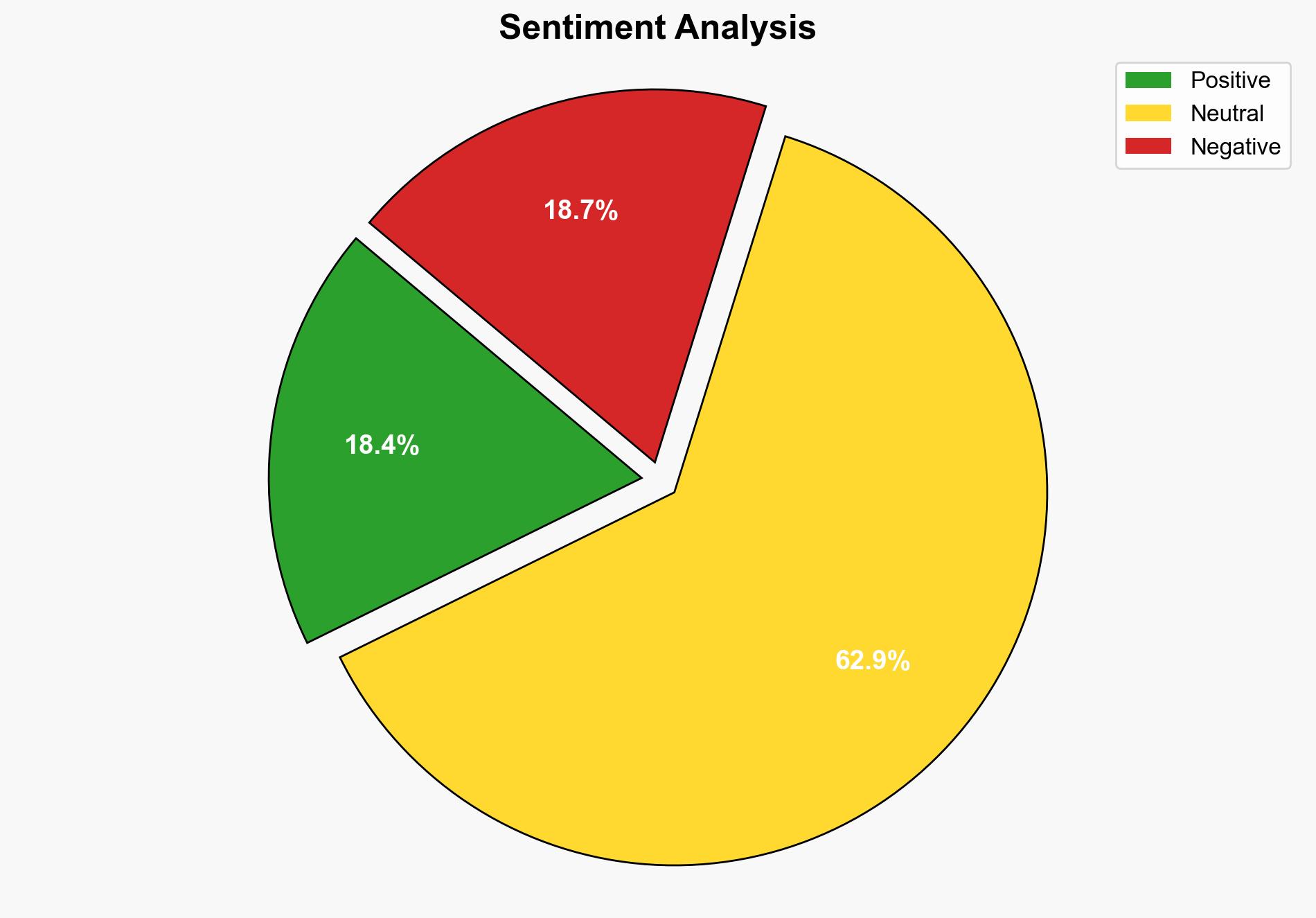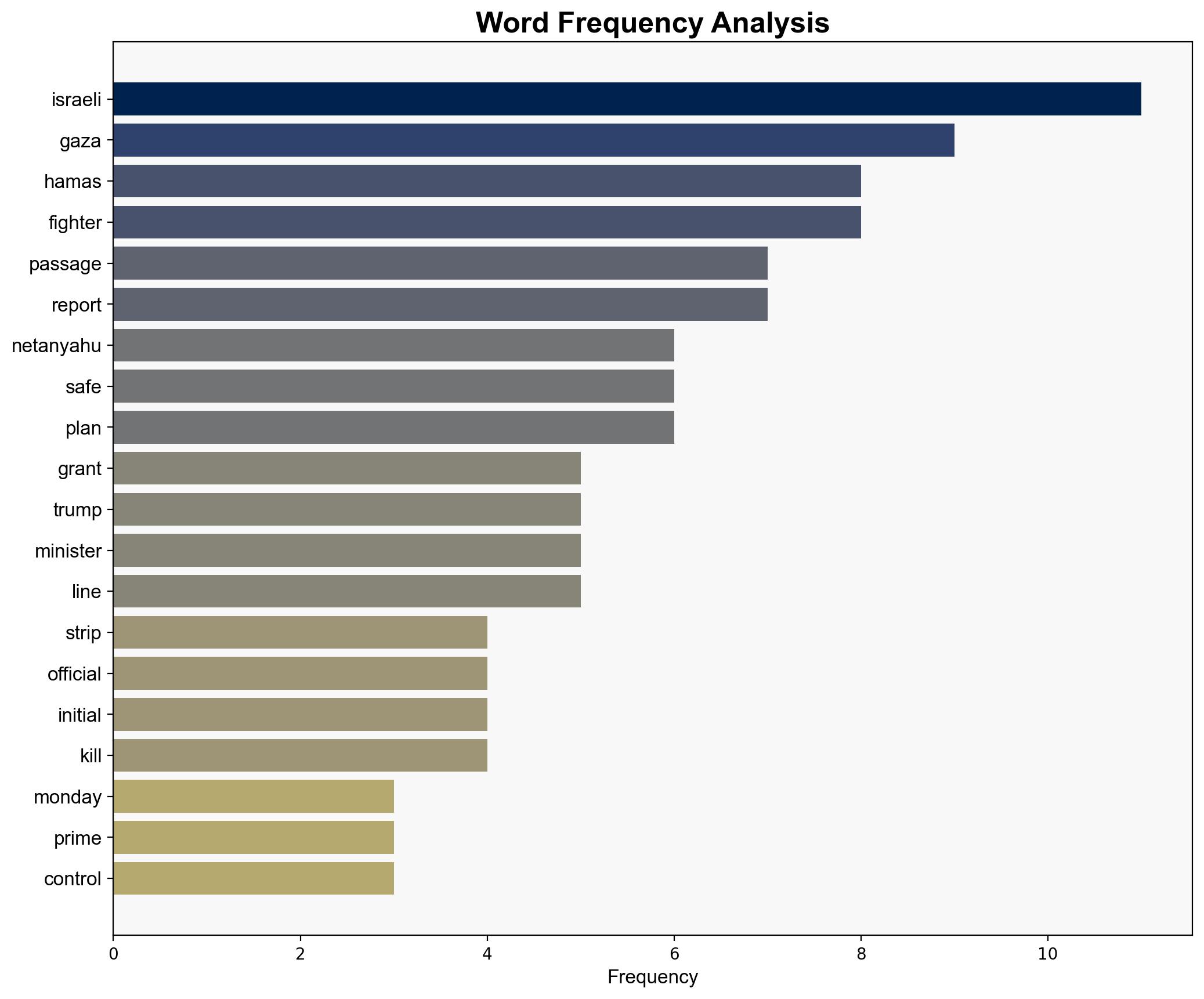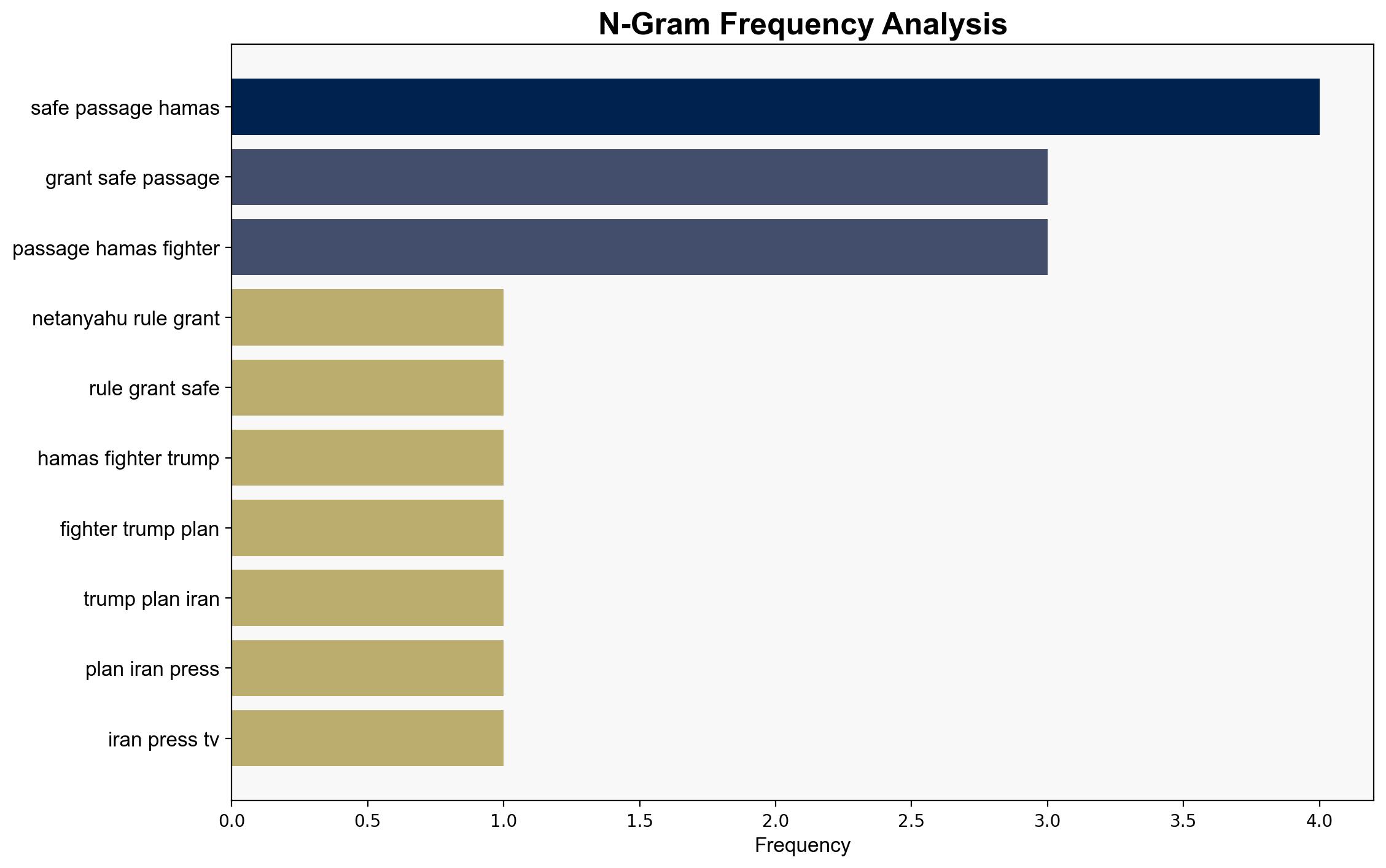Netanyahu rules out granting safe passage to Hamas fighters despite Trump plan – Globalsecurity.org
Published on: 2025-11-04
Intelligence Report: Netanyahu rules out granting safe passage to Hamas fighters despite Trump plan – Globalsecurity.org
1. BLUF (Bottom Line Up Front)
The most supported hypothesis is that Netanyahu’s firm stance against granting safe passage to Hamas fighters aligns with his broader strategy to maintain a hardline approach on security and counter-terrorism, despite external pressures from the Trump plan. Confidence in this hypothesis is moderate due to conflicting reports and political pressures. Recommended action includes monitoring Israeli domestic political dynamics and potential shifts in U.S.-Israel relations.
2. Competing Hypotheses
1. **Hypothesis A**: Netanyahu’s refusal to grant safe passage is a strategic move to maintain a strong security posture and prevent Hamas from regrouping, aligning with his long-standing policy against negotiating with Hamas.
2. **Hypothesis B**: The denial of safe passage is a temporary political maneuver to appease domestic hardliners and maintain coalition stability, with potential future concessions possible under international pressure.
Using Analysis of Competing Hypotheses (ACH), Hypothesis A is better supported by Netanyahu’s historical policy positions and the immediate denial from his office. Hypothesis B, while plausible, lacks direct evidence of imminent policy shifts.
3. Key Assumptions and Red Flags
– **Assumptions**: It is assumed that Netanyahu’s public statements accurately reflect his policy intentions. Another assumption is that the Trump plan exerts significant pressure on Israeli decision-making.
– **Red Flags**: Conflicting reports about the safe passage agreement and the lack of clarity on the Trump plan’s enforcement mechanisms suggest potential misinformation or miscommunication.
– **Blind Spots**: Limited insight into internal Israeli political negotiations and the full scope of U.S. diplomatic efforts.
4. Implications and Strategic Risks
– **Geopolitical Risks**: Continued refusal to engage with Hamas could escalate tensions in Gaza, potentially leading to renewed conflict.
– **Domestic Risks**: Netanyahu faces pressure from both hardliners and opposition parties, risking political instability.
– **International Risks**: Strained U.S.-Israel relations if the Trump plan is perceived as undermined, affecting broader Middle East peace efforts.
5. Recommendations and Outlook
- Monitor Israeli domestic political developments for shifts in coalition dynamics.
- Engage in diplomatic dialogues to clarify the Trump plan’s expectations and Israel’s commitments.
- Scenario Projections:
- **Best Case**: Israel and Hamas reach a sustainable ceasefire agreement, reducing regional tensions.
- **Worst Case**: Breakdown in negotiations leads to renewed conflict in Gaza, destabilizing the region.
- **Most Likely**: Continued stalemate with sporadic escalations, maintaining the status quo.
6. Key Individuals and Entities
– Benjamin Netanyahu
– Donald Trump
– Bezalel Smotrich
– Itamar Ben Gvir
– Benny Gantz
– Avigdor Liberman
7. Thematic Tags
national security threats, counter-terrorism, regional focus




